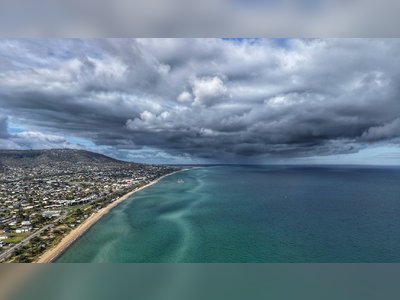
Australia’s Under-16 Social Media Rule Triggers Global Trend as New Zealand and EU Move to Follow
Australia enforces a ban on under-16s using major social platforms; New Zealand plans similar legislation and EU debates digital age standard
Australia will become the first country to require major social-media platforms to take ‘‘reasonable steps’’ to prevent account creation or retention by those under the age of sixteen, a measure that takes effect on 10 December 2025. The legislation amends the Online Safety Act and will see platforms such as Facebook, Instagram, Snapchat, X (formerly Twitter), YouTube and TikTok come under the new minimum-age framework.
Under the framework, platforms must identify ‘‘age-restricted social media services’’—those whose key purpose is enabling interaction between users and allowing posting of content—and then prevent under-sixteens from creating or continuing accounts.
Failure to take ‘‘reasonable steps’’ may lead to fines up to A$49.5 million.
The government has clarified that universal age verification is not required; rather a layered ‘‘waterfall’’ of methods is acceptable.
Following this move, New Zealand has advanced a bill that would similarly require age verification and restrict access for under-sixteens.
Introduced as a Member’s Bill by MP Catherine Wedd, it has the backing of National Party leader Prime Minister Christopher Luxon, though coalition partners have yet to formally commit.
Civil-liberties groups warn that the bill risks privacy and freedom of expression.
At the same time, the European Union is debating the establishment of a ‘‘digital age of majority’’ for social-media access, with countries including Denmark and Spain favouring thresholds of fifteen or sixteen years old and the European Commission signalling growing interest in standardised rules across the bloc.
Many internal discussions centre on parental consent, age-verification systems and the definition of ‘‘adult content’’ online.
Proponents of the Australian law say it is a global first that addresses youth mental health, bullying and the addictive design of social platforms.
Critics argue enforcement will be difficult, pointing to counsel from Google that the law ‘‘will not make children safer’’ and may lead to unintended privacy risks.
With Australia’s rule now on the books, jurisdictions across the Indo-Pacific and Europe are watching closely.
The policy may mark the beginning of a broader regulatory wave aimed at age-appropriate online experiences for minors.
Under the framework, platforms must identify ‘‘age-restricted social media services’’—those whose key purpose is enabling interaction between users and allowing posting of content—and then prevent under-sixteens from creating or continuing accounts.
Failure to take ‘‘reasonable steps’’ may lead to fines up to A$49.5 million.
The government has clarified that universal age verification is not required; rather a layered ‘‘waterfall’’ of methods is acceptable.
Following this move, New Zealand has advanced a bill that would similarly require age verification and restrict access for under-sixteens.
Introduced as a Member’s Bill by MP Catherine Wedd, it has the backing of National Party leader Prime Minister Christopher Luxon, though coalition partners have yet to formally commit.
Civil-liberties groups warn that the bill risks privacy and freedom of expression.
At the same time, the European Union is debating the establishment of a ‘‘digital age of majority’’ for social-media access, with countries including Denmark and Spain favouring thresholds of fifteen or sixteen years old and the European Commission signalling growing interest in standardised rules across the bloc.
Many internal discussions centre on parental consent, age-verification systems and the definition of ‘‘adult content’’ online.
Proponents of the Australian law say it is a global first that addresses youth mental health, bullying and the addictive design of social platforms.
Critics argue enforcement will be difficult, pointing to counsel from Google that the law ‘‘will not make children safer’’ and may lead to unintended privacy risks.
With Australia’s rule now on the books, jurisdictions across the Indo-Pacific and Europe are watching closely.
The policy may mark the beginning of a broader regulatory wave aimed at age-appropriate online experiences for minors.
AI Disclaimer: An advanced artificial intelligence (AI) system generated the content of this page on its own. This innovative technology conducts extensive research from a variety of reliable sources, performs rigorous fact-checking and verification, cleans up and balances biased or manipulated content, and presents a minimal factual summary that is just enough yet essential for you to function as an informed and educated citizen. Please keep in mind, however, that this system is an evolving technology, and as a result, the article may contain accidental inaccuracies or errors. We urge you to help us improve our site by reporting any inaccuracies you find using the "Contact Us" link at the bottom of this page. Your helpful feedback helps us improve our system and deliver more precise content. When you find an article of interest here, please look for the full and extensive coverage of this topic in traditional news sources, as they are written by professional journalists that we try to support, not replace. We appreciate your understanding and assistance.










